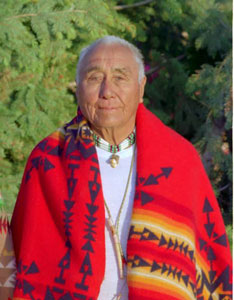A Quote by Gilbert K. Chesterton
The Sentimentalist, roughly speaking, is the man who wants to eat his cake and have it. He has no sense of honor about ideas; he will not see that one must pay for an idea as well as for anything else. He will have them all at once in one wild intellectual harem, no matter how much they quarrel and contradict each other.
Related Quotes
Besides loving each other, we must bear with each other and pardon ? 'forgive them that trespass against us' ? in order that our heavenly Father may 'forgive us our trespasses' (Mt. 6:14). Thus, with all your soul honor and love in every man the image of God, not regarding his sins, for God alone is Holy and without sin; and see how He loves us, how much He has created and still creates for us, punishing us mercifully and forgiving us bounteously and graciously. Honor the man also, in spite of his sins, for he can always amend.
The value of an idea has nothing whatsoever to do with the sincerity of the man who expresses it. Indeed, the probabilities are that the more insincere the man is, the more purely intellectual will the idea be, as in that case it will not be coloured by either his wants, his desires, or his prejudices.
Trench says a wild man is a willed man. Well, then, a man of will who does what he wills or wishes, a man of hope and of the future tense, for not only the obstinate is willed, but far more the constant and persevering. The obstinate man, properly speaking, is one who will not. The perseverance of the saints is positive willedness, not a mere passive willingness. The fates are wild, for they will; and the Almighty is wild above all, as fate is.
It is terrible to see how a single unclear idea, a single formula without meaning, lurking in a young man's head, will sometimes act like an obstruction of inert matter in an artery, hindering the nutrition of the brain and condemning its victim to pine away in the fullness of his intellectual vigor and in the midst of intellectual plenty.
See, that's the thing about second chances. It's two people that are there for each other and support each other and care about each other no matter how much they want to deny it. It's about one person doing everything they can to make sure the other doesn't fall and vice-versa. Second chances are about holding on to that other persons hand no matter how hard they beg to let go.
Roughly speaking, any man with energy and enthusiasm ought to be able to bring at least a dozen others round to his opinion in the course of a year no matter how absurd that opinion might be. We see every day in politics, in business, in social life, large masses of people brought to embrace the most revolutionary ideas, sometimes within a few days. It is all a question of getting hold of them in the right way and working on their weak points.
And what made these heart-to-hearts possible--you might even say what made the whole friendship possible during that time--was this understanding we had that anything we told each other during these moments would be treated with careful respect: that we'd honor confidences, and that no matter how much we rowed, we wouldn't use against each other anything we'd talked about during those sessions.
Love can be expressed and received in all five languages. However, if you don't speak a person's primary love language, that person will not feel loved, even though you may be speaking the other four. Once you are speaking his or her primary love language fluently, then you can sprinkle in the other four and they will be like icing on the cake.
It's a strange thing, how you can love somebody, how you can be all eaten up inside with needing them--and they simply don't need you. That's all there is to it, and neither of you can do anything about it. And they'll be the same way with someone else, and someone else will be the same way about you and it goes on and on--this desperate need--and only once in a rare million do the same two people need each other.
How beautifully is it ordered, that as many thousands work for one, so must every individual bring his labor to make the whole! The highest is not to despise the lowest, nor the lowest to envy the highest; each must live in all and by all. Who will not work neither shall he eat. So God has ordered that men, being in need of each other, should learn to love each other, and bear each other's burdens.
Man, no doubt, owes many other moral duties to his fellow men; such as to feed the hungry, clothe the naked, shelter the homeless, care for the sick, protect the defenseless, assist the weak, and enlighten the ignorant. But these are simply moral duties, of which each man must be his own judge, in each particular case, as to whether, and how, and how far, he can, or will perform them.
Man is like a tree. If you stand in front of a tree and watch it incessantly, to see how it grows, and to see how much it has grown, you will see nothing at all. But tend it at all times, prune the runners and keep it free of beetles and worms, and all in good time-it will come into its growth. It is the same with man: all that is necessary is for him to overcome his obstacles, and he will thrive and grow. But it is not right to examine him hour after hour to see how much has already been added to his stature.
We must recognize that the goal of a cleaner environment will not be achieved by rhetoric or moral dedication alone. It will not be cheap or easy and the costs will have to be borne by each citizen, consumer and taxpayer. How clean is clean enough can only be answered in terms of how much we are willing to pay and how soon we seek success... It is simplistic to seek ecological perfection at the cost of bankrupting the very tax-paying enterprises which must pay for the social advances we seek.






































